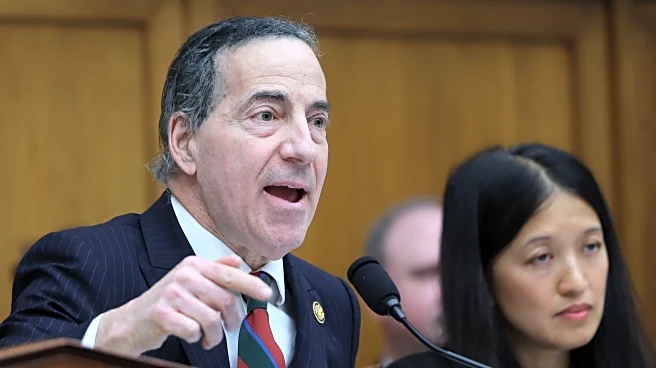What's Happening?
Russia's Foreign Minister Sergei Lavrov has stated that Russia has no intention of attacking EU or NATO member states, but warned of a decisive response to any aggression directed towards Moscow. Lavrov's comments were made during a speech at the UN General Assembly, where he also criticized Western countries for their threats against Russia, which he claims are becoming increasingly common. Lavrov addressed the ongoing tensions in Europe, including accusations from Denmark and Estonia regarding airspace violations, and emphasized that any aggression against Russia would be met with a strong response. Additionally, Lavrov criticized Western powers for sabotaging diplomacy with Iran, following a failed bid led by Russia and China to delay sanctions. The sanctions are set to come into force, further straining relations between Russia and Western countries.
Why It's Important?
Lavrov's statements are significant as they highlight the ongoing geopolitical tensions between Russia and Western countries, particularly in the context of NATO and EU relations. The assertion of no intent to attack, coupled with warnings of a decisive response, underscores the fragile balance of power and the potential for escalation in Europe. This situation impacts international diplomacy, security policies, and military strategies, as countries navigate the complex dynamics of Russian-Western relations. The reimposition of sanctions on Iran further complicates diplomatic efforts and could influence global economic and political landscapes, affecting stakeholders in international trade and security.
What's Next?
The geopolitical landscape may see increased diplomatic efforts to address the tensions between Russia and Western countries, particularly concerning airspace violations and military posturing. NATO and EU member states might reassess their defense strategies and diplomatic approaches to mitigate potential conflicts. The sanctions on Iran could lead to further diplomatic negotiations or retaliatory measures, impacting international relations and economic policies. Stakeholders, including political leaders and international organizations, will likely monitor these developments closely to anticipate and respond to shifts in global security and diplomacy.
Beyond the Headlines
The situation raises ethical and legal questions about international airspace violations and the use of military force in geopolitical conflicts. The strained relations between Russia and Western countries could lead to long-term shifts in global alliances and power structures, influencing international norms and policies. The diplomatic challenges with Iran highlight the complexities of international sanctions and their impact on global trade and political relations, prompting discussions on the effectiveness and consequences of such measures.










